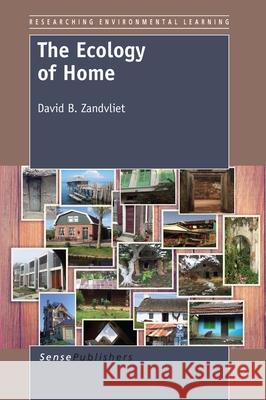The Ecology of Home » książka
The Ecology of Home
ISBN-13: 9789463005784 / Angielski / Twarda / 2016 / 122 str.
The Ecology of Home
ISBN-13: 9789463005784 / Angielski / Twarda / 2016 / 122 str.
(netto: 419,90 VAT: 5%)
Najniższa cena z 30 dni: 425,63
ok. 30 dni roboczych
Dostawa w 2026 r.
Darmowa dostawa!
Education researchers worldwide face a basic question: Is their purpose to use people to develop knowledge, or use knowledge to develop people? This book offers an exploration to this fundamental question by examining what three core disciplines - ecology, economics, and ecumenism - have in common. These disciplines have roots in the ancient Greek notion of the household (oikos). By examining some complementary and competing principles among the disciplines, the book uncovers some commonalities between science, economics and religion, that support a holistic view of ecology or ecological education. The format for the discussion comprises a number of selected academic chapters on each of the topics above as well as a number of other creative media which include drawings figures, prose, poetry and photography which creatively draws connections among the diverse and interdisciplinary concepts and theories presented. In addition, the content of this book has attempted minimize academic jargon to make the ideas more accessible to an audience of academics, teachers and a wider general audience.
Education researchers worldwide face a basic question: Is their purpose to use people to develop knowledge, or use knowledge to develop people? This book offers an exploration to this fundamental question by examining what three core disciplines - ecology, economics, and ecumenism - have in common. These disciplines have roots in the ancient Greek notion of the household (oikos). By examining some complementary and competing principles among the disciplines, the book uncovers some commonalities between science, economics and religion, that support a holistic view of ecology or ecological education. The format for the discussion comprises a number of selected academic chapters on each of the topics above as well as a number of other creative media which include drawings figures, prose, poetry and photography which creatively draws connections among the diverse and interdisciplinary concepts and theories presented. In addition, the content of this book has attempted minimize academic jargon to make the ideas more accessible to an audience of academics, teachers and a wider general audience.











